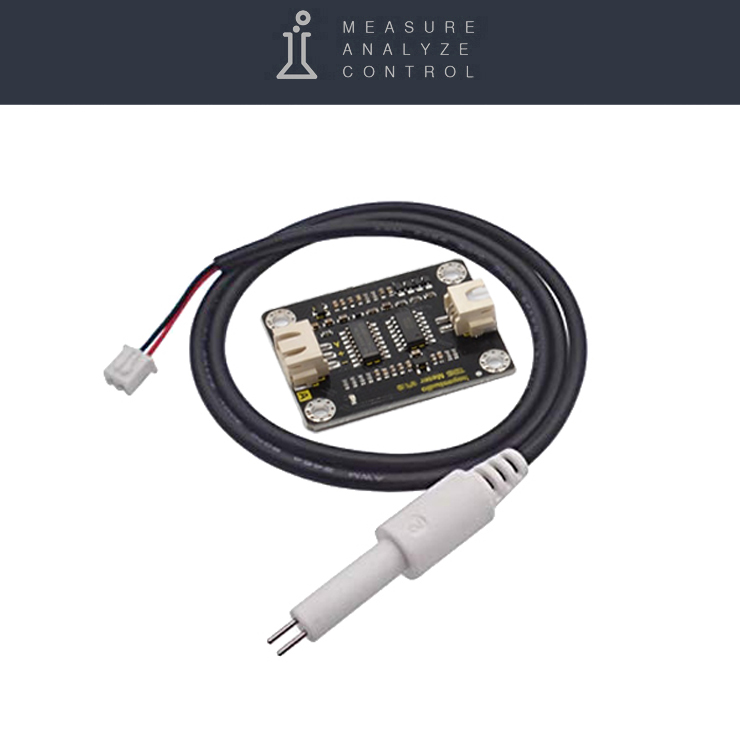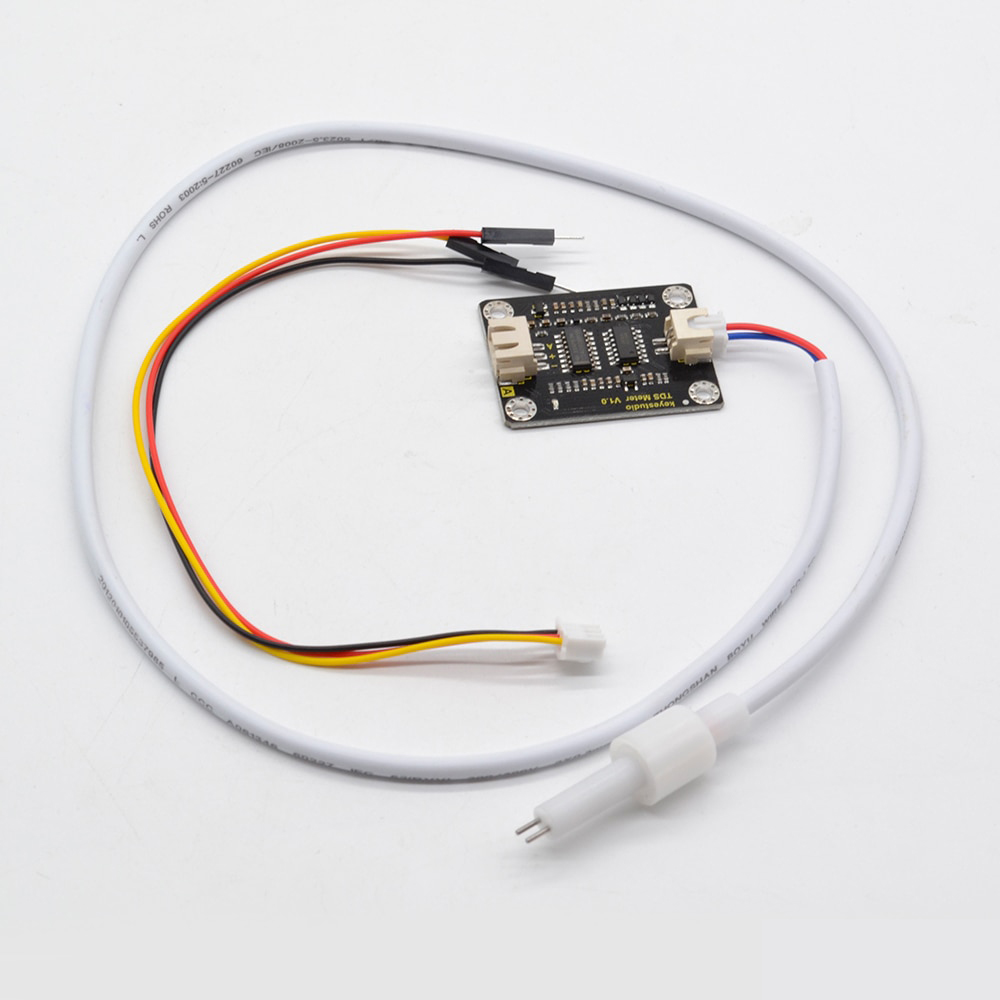TDS Level Sensor, salt meter
Total Dissolved Solids Sensor for water treatment systems
Sensor: TDS Level
Output Type: Analog 0 . . 2.3V
Alternative Products:
Buy now and install in a couple of days
Two weeks money-back guarantee
Two years warranty
TDS level sensor (salt meter)
The sensor is connected to analog input of the smart meter smart-MAIC D105.
Wiring diagram and settings in the Knowledge Base »
The TDS sensor is used to determine the hardness of water and measures the concentration of salts dissolved in water and stands for "Total Dissolved Solids" - the total content of dissolved solids.
The higher the TDS level in water, the more likely harmful impurities, which can pose a health hazard, interfere with the absorption of water molecules at the cellular level. Generally, the maximum permissible level of water pollution is 500 mg / liter or 500 parts per million (ppm) of the total dissolved solids in the water. If you have filters for water purification, then a TDS meter is simply necessary for timely replacement of cartridges.
0. ... 50 Pure drinking water (OSMOS) |
|
71. ... 300 Process water (plumbing) |
301. .400 Hard water (bodies of water) |
401. ... 500 Maximum permissible water |
500 + Dangerous to health |
Specifications:
Supply voltage: 5V DC
Output signal: 0 ... 2.3 V DC
Working temperature: 0 ... +50 °С
Detection range: 0-1000 ppm
Measurement accuracy: ± 10%
Enclosure type: waterproof probe
For reference
The conductivity of water is an indicator of its salt content. The low ion content of the water means very low conductivity, while, for example, seawater has a high conductivity. The conductivity of water is usually measured in µS/cm (= micro-siemens/cm). The normal conductivity of fresh water and pond water is 300 to 1200 µS/cm. At a conductivity below this level, there is a lack of ions, which in turn leads to a low resistance to external factors, which can be expressed in constant fluctuations in the pH level. Water with a conductivity higher than 1.200 µS/cm is no longer fresh. For example, it is important to control the conductivity of the water in aquariums so that fish do not have a pH shock.
Website: www.smart-maic.com
Live Demo: dash.smart-maic.com










